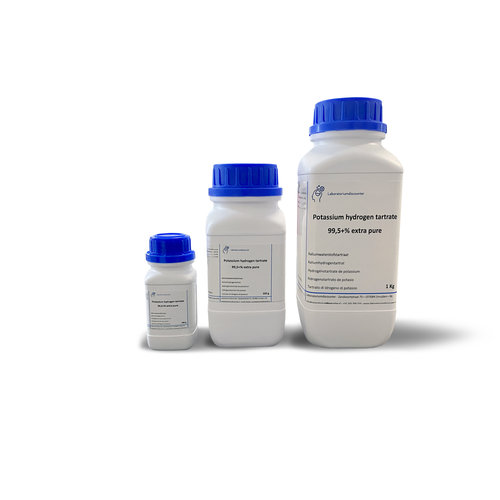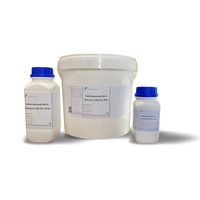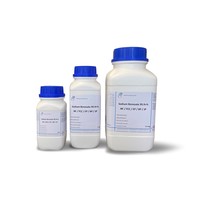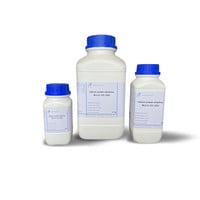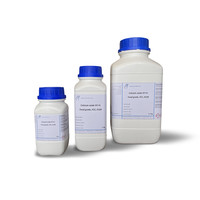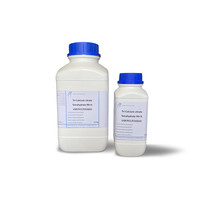You have no items in your shopping cart
Potassium hydrogen tartrate ≥99,5 %, extra pure
- Buy 2 and save 5%
- Buy 6 and save 10%
Potassium bitartrate is an organic compound with the chemical formula COOH-CHOH-CHOH-COOK or compact C4O6H5K, a by-product of winemaking. It is also known as monopotassium tartrate, potassium acid tartrate, potassium hydrogen tartrate, "tartar", "white tartar", "crystal (or crystals) of tartar".
Monopotassium tartrate or additive E336(i), authorized in France, is used as a stabilizer and acidity regulator.
To use
making wine
It acts as a catalyst during the tartaric stabilization of wines. Its oenological use, in the cooling of wines, is explained simply because, through its saturation effect, it initiates and promotes the formation of other crystals of potassium bitartrate, while accelerating the sedimentation of endogenous crystals present in the wine.
kitchen
In the kitchen, under the name of cream of tartar, this powder is used in the composition of "raising agents", that is, chemical yeasts based on sodium bicarbonate.
food additive
It is a food additive authorized in Europe under number E336(i)6. The Codex Alimentarius classifies it into two functional categories: stabilizer and sequestrant.
It is used to stabilize egg whites or whipped egg whites in meringues or various soufflés. It hinders the crystallization of sugar in confectionery, is used for the formation of invert sugar during the cooking of various sugar solutions. This creates a paste of boiled sugar, of better quality, which is both glassy and has a good shelf life.
Empirical formula C4H5KO6
Molar mass (M) 188,18 g/mol
Density (D) 1,95
Melting point (mp)ca. 250 °C (dec.)
Solubility ca. 6 g/l (H2O, 20 °C)
WGK 1
CAS No.[868-14-4]
EG-Nr. 212-769-1

